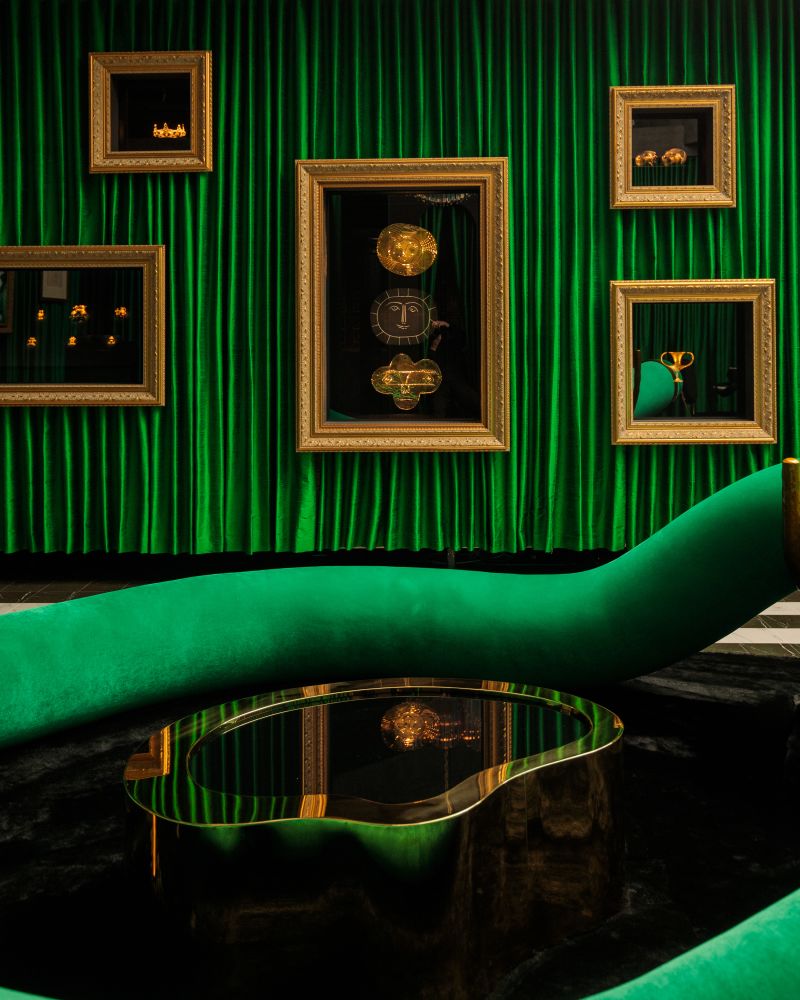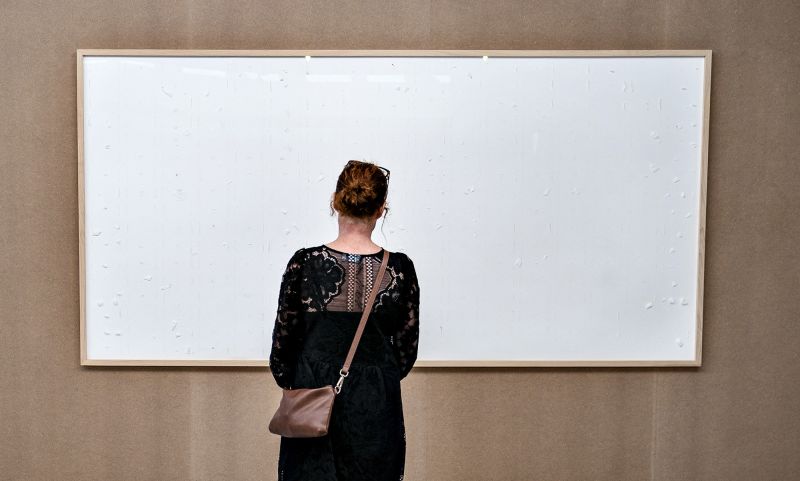
Breaking Gender Barriers: Art Exhibit Initially Exclusive to Women Opens Doors to All

Discover how Tasmania’s Museum of Old and New Art (MONA) broke gender stereotypes by welcoming all visitors, regardless of gender identity. Explore the impact of inclusivity in a once-exclusive exhibit that challenged societal norms.
A museum in Australia has been told to allow men into an art exhibit that was originally meant for women only. The decision came after a man complained about being denied entry, calling it discriminatory.
Tasmania’s Museum of Old and New Art (MONA) has been given 28 days to stop excluding people who do not identify as women from the Ladies Lounge exhibit. This ruling was made by the Tasmanian Civil and Administrative Tribunal on Tuesday.
The museum promotes artist and museum curator Kirsha Kaechele's experiential artwork as a luxurious space for women to enjoy decadent treats, fancy drinks, and other elegant pleasures, all while being hosted and entertained by a fabulous butler.
Jason Lau, a visitor from New South Wales, paid the museum's entry fee but was denied access to the exhibit on April 1 last year. He believed he was a victim of direct gender discrimination and filed a complaint with Equal Opportunities Tasmania, as stated in tribunal documents.
Kaechele explained to the tribunal that excluding men from the mysterious room is intentional, meant to make them understand the discrimination and exclusion that women have faced throughout history.
She expressed her belief that women should have both equal rights and special privileges in the form of unequal rights, as a way to make up for historical injustices, for at least 300 years.
The Ladies Lounge, adorned with green silk curtains, houses a collection of "precious antiquities and priceless modernist works," with two paintings that showcase Picasso's genius, as described by Kaechele. 
The tribunal acknowledged that the art exhibition included a participatory element that was intentionally discriminatory. This discrimination was done for a genuine artistic purpose that many people may appreciate, sympathize with, or endorse.
However, it also asserted that Australia’s 1998 anti-discrimination act “does not permit discrimination for good faith artistic purpose per se.”
An extension of the art
Kaechele and her supporters approached the tribunal as an extension of her art, wearing matching dark blue suits and moving in sync.
During her testimony, the artist expressed, "We are so deeply immersed in the control of man that we don't even realize how we contribute to and strengthen his power."
The Ladies Lounge was created as a peaceful space for women to retreat to. It is a haven where they can think clearly and enjoy the company of other women. It offers an escape from the invisible story woven throughout history.
Kaechele and her navy-clad entourage outside the tribunal.
Kaechele and her navy-clad entourage outside the tribunal.
Charlotte Vignau
Kaechele shared in a previous interview with ABC’s The Project that she appreciated Lau’s complaint because it allowed her to legally test out the argument. However, she cautioned that if Lau's complaint is successful, it would result in the closure of the Ladies Lounge.
She explained, "The ruling would require us to open the lounge to men, which is not something we are able to do."
A woman is seen standing in front of an empty frame at the Kunsten Museum in Aalborg, Denmark on September 28, 2021. Danish artist Jens Haaning borrowed $84,000 from the museum to recreate old artworks using banknotes. However, instead of returning the artworks, he sent back blank canvases with a new title: "Take the Money and Run." Haaning had taken the money and left, pocketing the loan meant for reproducing two works that symbolized annual salaries in Denmark and Austria.
A woman stands in front of an empty frame hung up at the Kunsten Museum in Aalborg, Denmark, on September 28 2021. - The Danish museum loaned an artist $84,000 in cash to recreate old artworks of his using the banknotes, but the boxes he sent only contained blank canvasses and a new title: "Take the Money and Run". Danish artist Jens Haaning had done just that, pocketing the money the Kunsten Museum in the western city of Aalborg had loaned him to reproduce two works that used Danish kroner and euros to represent the annual salary in Denmark and Austria. - Denmark OUT / RESTRICTED TO EDITORIAL USE - MANDATORY MENTION OF THE ARTIST UPON PUBLICATION - TO ILLUSTRATE THE EVENT AS SPECIFIED IN THE CAPTION (Photo by Henning Bagger / Ritzau Scanpix / AFP) / Denmark OUT / RESTRICTED TO EDITORIAL USE - MANDATORY MENTION OF THE ARTIST UPON PUBLICATION - TO ILLUSTRATE THE EVENT AS SPECIFIED IN THE CAPTION / Denmark OUT / RESTRICTED TO EDITORIAL USE - MANDATORY MENTION OF THE ARTIST UPON PUBLICATION - TO ILLUSTRATE THE EVENT AS SPECIFIED IN THE CAPTION (Photo by HENNING BAGGER/Ritzau Scanpix/AFP via Getty Images)
Henning Bagger/Ritzau Scanpix/AFP/Getty Images
Related article
Danish artist who submitted blank canvases as ‘art’ has been ordered to repay museum.
After the ruling on Tuesday, a spokesperson for MONA expressed their deep disappointment with the tribunal’s decision. They mentioned that the institution will take some time to process the result and explore their options. Additionally, they emphasized the importance of respecting the artist’s privacy during this time.
The museum's official Instagram account responded with a photo showing a hand in velvet with the initials KK, making a gesture with the middle finger. One user shared their experience, saying, "I visited in 2021 with my husband and enjoyed the novelty of entering a space restricted to men. Everything was beautiful - the room, the art installation, and the deeper meaning behind it all."
Editor's P/S:
The Tasmanian Civil and Administrative Tribunal's ruling has sparked a heated debate about gender discrimination and artistic expression. The decision to force the Museum of Old and New Art (MONA) to allow men into the women-only Ladies Lounge exhibit has left many questioning the limits of artistic freedom and the validity of gender-based discrimination.
While artist Kirsha Kaechele's intention to create a space for women to escape historical discrimination is understandable, it's important to consider the broader implications of excluding an entire gender group. The tribunal's ruling highlights the need for a balance between artistic expression and the protection of equal rights. It remains to be seen whether MONA will appeal the decision or find an alternative way to convey Kaechele's message without resorting to discriminatory practices.









